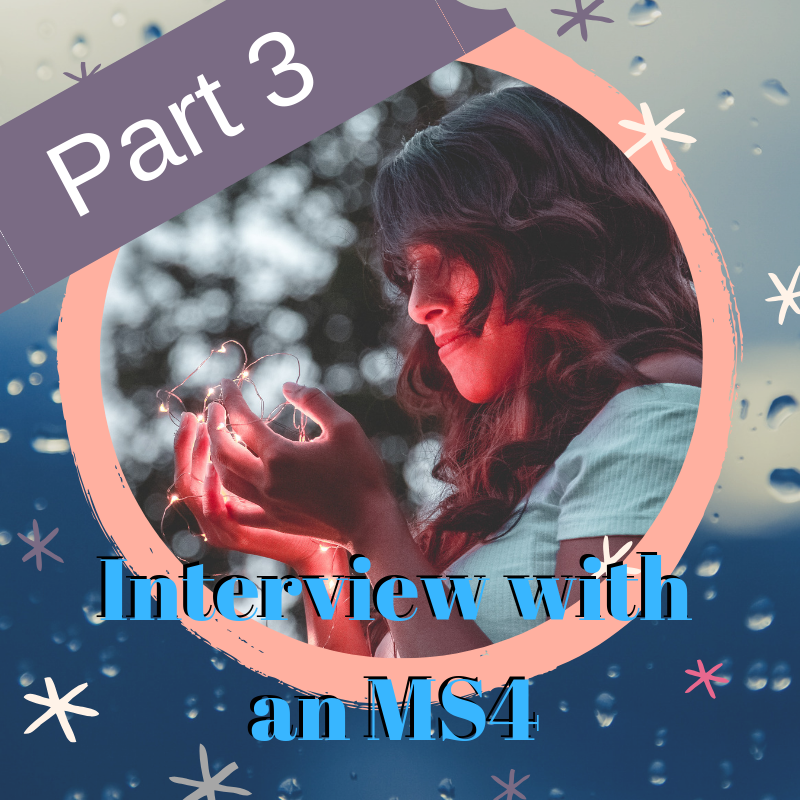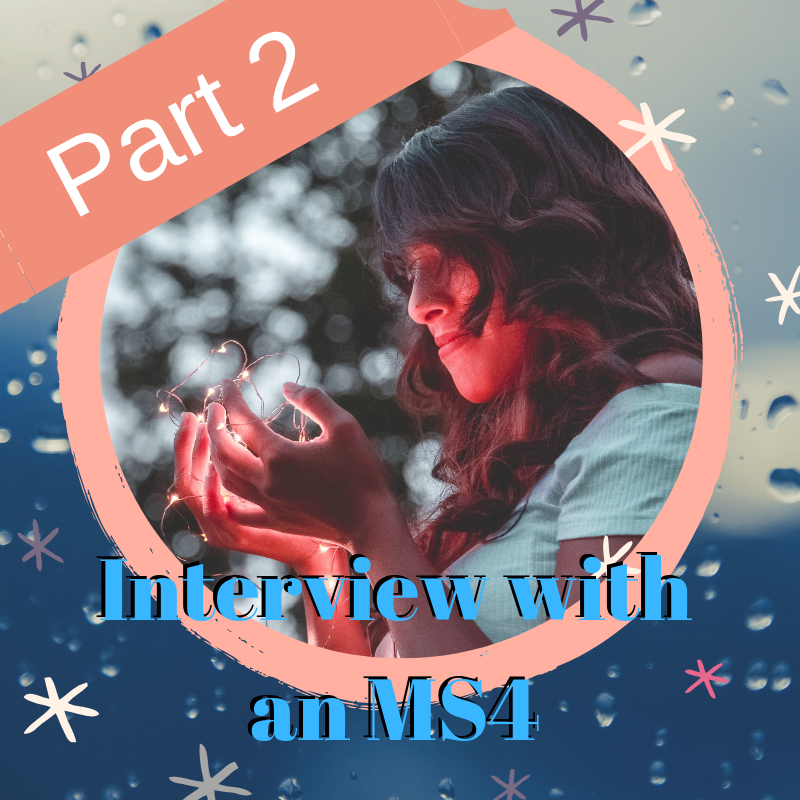Interview with a MS4: Part Three with Jordan Hoese

Today we end our three part interview with Jordan Hoese, MD, MPH, a soon-to-be intern. She Matched into Family Medicine and let us ask her a barrage of questions about specialty conflict, hidden curriculum, Choosing Family Medicine and more.
Basically I wanted a program that would prepare me to be a stellar outpatient and community doc but also super handy when things get serious and turn south…
If you’re just now joining us please read part one and part two.
When looking at FM residencies what factors were important to you?
As a medical student at a tertiary care center without a strong FM presence, I had witnessed how FM residents could be treated like medical students on “off-service” rotations – even though there are no true “off-service” rotations for FM, but I digress. After these experiences, I felt pretty strongly about only applying to unopposed programs, where I wouldn’t have to fight to earn a place at the table. But I also wanted strong teaching, and a good academic structure. This led me to apply to community-based, university-affiliated, unopposed programs with a broad scope.
I really wanted as broad spectrum as possible so I can practice in any setting in the future. I wanted to deliver babies, including opportunities for good primary c-section numbers, rigorous inpatient training including ICU experience, and strong pediatrics experience including NICU exposure. But I also wanted a robust clinic model with quality improvement infrastructure and opportunities for public health initiatives and community engagement. I also wanted to go to a RHEDI program or a program with good support and funding for full-spectrum women’s health care. Finally, I wanted to go to a program that valued social justice and advocacy.
I already have an MPH with a focus in global health, and plan on practicing abroad at some point in my career. So I also wanted a program with a strong global health infrastructure for GH experiences and training during residency, and alumni who were practicing abroad.
I am originally from California, and wanted to live back out west in a place that better fit my lifestyle, including being closer to nature. I was lucky that the general distribution of full-spectrum Family Med programs coincided well with these geographic preferences.
Basically I wanted a program that would prepare me to be a stellar outpatient and community doc but also super handy when things get serious and turn south, whether that’s in the ICU, in the middle of nowhere, or in clinic. I consider myself so incredibly lucky to have matched at OHSU Cascades East, which checks all of these boxes and more that I didn’t even know I had on my residency wish list.
Are you considering any additional training or fellowship in your future?
I’m open to it! I think it depends on how I feel my skill set is in the middle/end of residency. Currently the fellowships I would consider are OB, rural medicine, and global health. These are the areas I can see myself wanting more training in/exposure to prior to independent practice.
Today, are you planning on academic, rural or urban practice in the future; and what makes you lean toward that setting?
I am planning on a more rural practice, and although I don’t want to work at an academic center, I love teaching and would love to be involved in medical education or training in some way. I see myself attending in a rural residency, then practicing in an underserved rural setting domestically, then abroad, and then coming back to the states and maybe working as leadership or faculty in a rural residency program.
I am drawn to rural practice for personal and professional reasons. Professionally, I feel that some of the greatest needs in healthcare, both for patients and the healthcare system at large, are in rural underserved areas. I also love the scope of practice, and the challenge of being forced to work outside my comfort zone and think outside the box to do the best we can, with what we have, where we are.
I also feel my interests in public health and community development are best suited for a small community — my experiences working at the WHO left a sour taste in my mouth when it comes to working at such high levels of public health. Between the bureaucracy and the distance we were removed from the people whose lives we were actually affecting. I realized pretty quickly that I needed to be working on the ground, in the community, and that the smaller the community was the more able I was going to be to make things happen for my patients.
And finally, I’m really tired of traffic! I went to college in downtown Los Angeles, and medical school in downtown Dallas, and I’m tired of living in a big city, especially one that offers no outdoor activities. All of my vacations in medical school were taking long road trips to go hiking and camping in tiny towns out West, so I’m excited that my whole life (not just vacation) gets to look like that soon!
What advice do you have for current MS3s trying to decide which specialty is right for them?
Some of the most interesting advice I ever got was to think about what you hate the most about each specialty, and then decide which of those things you can live with the most. Because at the end of the day, you better be able to tolerate (or even enjoy) the worst parts of your career just as much as the best parts!
For me, I knew Family Medicine was right for me not because I had an amazing time on my clerkship, but because when I was on every other clerkship, the doctors would focus only on the patient’s problem that interested them, which wasn’t always the same one that mattered to the patient. When the patient had a problem that the doctor couldn’t or didn’t want to handle, every specialty would tell the patient that they had to find someone else who could help them, and that they wouldn’t be able to do it.
Only family medicine consistently made time to answer patients’ “doorknob questions”, to figure things out when they didn’t know how, and to actually be there in a patient-centered way for them. Also, no other specialty seemed to care about public and community health, social determinants, and health disparities in such a systemic and institutional way, except for family medicine.
I mean, it was founded as part of the civil rights movement! Social justice and population advocacy are literally woven into the fabric of our specialty.
So I decided that while every rotation had interested me, these two pet peeves bothered me so much about every other specialty, that by the time I got to the end of rotations it felt like the only choice for me!
TL;DR: decide what you can (and can’t) live with!
That’s a Wrap
Thank you readers, for enjoying Jordan’s story with us. We hope to interview a few other newly Matched graduates this summer. Until then, stay cool.




